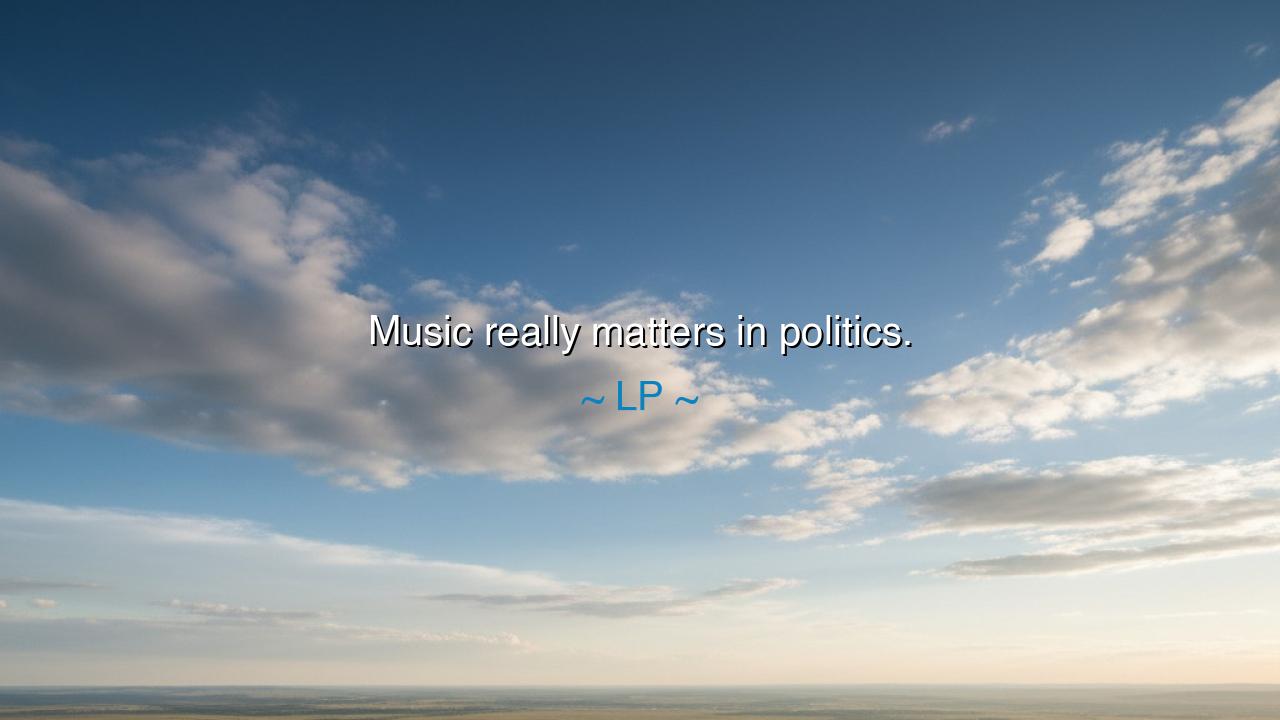
Music really matters in politics.






Music is the unseen voice of a people, the rhythm of their hopes and their sorrows. When LP declared, “Music really matters in politics,” they spoke of a truth as ancient as civilization itself: that the songs of a nation can stir hearts more deeply than laws or speeches. Where words may falter, melody and rhythm reach directly into the soul, awakening passions that can change the course of history. In this way, music becomes not merely entertainment, but a force of unity and revolution, shaping the destiny of nations.
At the heart of this wisdom lies the power of emotion. Politics often speaks to the mind, appealing to reason and debate, but music speaks to the heart, binding individuals into a collective spirit. A single song can inspire courage in the face of tyranny or kindle solidarity among the oppressed. It bypasses the walls of ideology and speaks in the universal language of feeling. Thus, rulers and revolutionaries alike have long understood that to move the people, one must first move their music.
History offers countless examples of this truth. During the American Civil Rights Movement, songs like “We Shall Overcome” were not just hymns—they were battle cries, giving strength to marchers as they faced violence and hatred. These melodies wove a spiritual armor around those who sang them, turning fear into resolve. Similarly, in the French Revolution, the “Marseillaise” rose from the streets to become a national anthem, igniting the flames of liberty in the hearts of the people. In both cases, music did not merely accompany politics; it drove the movement forward.
Even tyrants have recognized the power of music. Throughout history, oppressive regimes have sought to control the songs of their nations, banning certain rhythms or lyrics that might spark rebellion. The Nazis, for instance, manipulated classical music to glorify their ideology while silencing dissenting voices like that of composer Dmitri Shostakovich, whose symphonies carried veiled protests beneath their soaring notes. This struggle reveals that music is never neutral—it is always a battlefield of the spirit, where freedom and control wage war.
LP’s words also speak to our modern world. In an age of mass media and instant communication, music travels faster than ever before, capable of shaping public opinion and sparking political movements on a global scale. A song released today can become the anthem of protest tomorrow, echoing through streets and across continents. This truth calls upon artists and citizens alike to wield music with consciousness and purpose, for its power is both profound and perilous.
Let this lesson echo through the ages: music is the heartbeat of politics. It is the unseen thread that connects the ruler to the ruled, the past to the future, the individual to the collective. As LP reminds us, music truly matters, for it can inspire revolutions, heal divisions, and give voice to those who have been silenced. Guard it well, and use it wisely, for in its melodies lie the dreams and destinies of entire nations.






AAdministratorAdministrator
Welcome, honored guests. Please leave a comment, we will respond soon